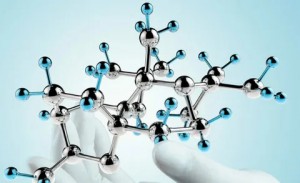Custom peptide manufacturing has become an indispensable component in the fields of biotechnology and pharmaceutical research. This specialized process involves the tailored production of peptides, which are short chains of amino acids with specific sequences and functions. Peptides are crucial in various biological processes and have significant applications in drug development, diagnostics, and therapeutic interventions. As research and development continue to push the boundaries of science, custom peptide manufacturing provides a means to create peptides with precise characteristics, meeting the unique needs of various scientific and medical applications.
The Process and Benefits of Custom Peptide Manufacturing:
Custom peptide manufacturing is a sophisticated process that requires precision and expertise. The process typically begins with the design of the peptide sequence, which is based on specific research goals or therapeutic targets. Advanced peptide synthesis techniques, such as solid-phase peptide synthesis (SPPS) or liquid-phase peptide synthesis, are employed to assemble the peptide chain. These methods allow for the creation of peptides with exact amino acid sequences, enabling researchers to study their functions or develop new drugs.
One of the primary benefits of custom peptide manufacturing is the ability to produce peptides tailored to specific research needs. For example, researchers investigating a particular disease may require peptides that mimic disease-related proteins or antigens. Custom manufacturing ensures that these peptides are produced with the required accuracy, purity, and quantity. This capability is essential for developing new diagnostics or therapeutic agents that are highly specific to their targets, thereby increasing their efficacy and safety.
Applications in Drug Development and Diagnostics:
The applications of custom peptide manufacturing are vast and varied. In drug development, custom peptides are often used as lead compounds or as components in peptide-based drugs. For instance, peptide hormones and growth factors are used in treatments for metabolic disorders, cancer, and other diseases. By creating peptides with specific sequences, researchers can design drugs that interact with targeted receptors or proteins, potentially leading to more effective treatments with fewer side effects.
In addition to drug development, custom peptides play a crucial role in diagnostics. Peptide-based assays are employed to detect biomarkers associated with diseases, providing valuable information for early diagnosis and monitoring. Custom peptide manufacturing enables the creation of highly specific probes and antibodies, enhancing the sensitivity and accuracy of diagnostic tests. This is particularly important in personalized medicine, where treatments are tailored to individual patient profiles based on their unique biomarkers.
Challenges and Future Directions:
Despite its advancements, custom peptide manufacturing faces several challenges. One significant challenge is the synthesis of long or complex peptides, which can be difficult and expensive to produce. The complexity of peptide sequences may lead to issues with purity and yield, requiring ongoing improvements in synthesis techniques and technologies.
Another challenge is the scalability of custom peptide production. While small-scale synthesis is well-established, scaling up production for commercial applications can be problematic. Ensuring cost-effectiveness and maintaining high quality in large-scale manufacturing are areas that require continuous innovation.
Looking to the future, advancements in technology and automation hold promise for overcoming these challenges. Innovations such as high-throughput synthesis platforms and improved purification methods could enhance the efficiency and cost-effectiveness of custom peptide manufacturing. Additionally, integrating computational tools and machine learning may facilitate the design of more complex peptides and streamline the manufacturing process.
Conclusion:
In conclusion, custom peptide manufacturing plays a pivotal role in modern scientific research and therapeutic development. The ability to produce peptides with precise sequences and characteristics enables significant advancements in drug development, diagnostics, and personalized medicine. Despite the challenges associated with complex peptide synthesis and scalability, ongoing advancements in technology and methodology continue to drive progress in this field. As custom peptide manufacturing evolves, it promises to further enhance our understanding of biological systems and improve therapeutic outcomes, underscoring its importance in the future of scientific and medical research.






















































